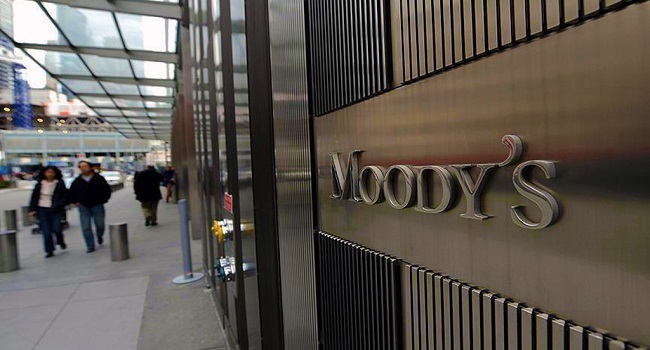Business
Nigerian banks face forex shortage up to $5bn –Moody’s

Nigerian banks face a foreign exchange funding gap that could reach up to $5 billion on account of currency shortages from dwindling oil revenue, poor remittances and unstable foreign inflows, global rating agency Moody’s said on Wednesday.
In its July 2020 foreign exchange appraisal report titled “Renewed Foreign Currency Shortages Highlight Vulnerability for Nigerian Banks,” Moody’s said the current economic condition might trigger a new wave of the foreign exchange liquidity crisis that beset Nigerian banks during the oil crash of 2016-2017.
It affirmed that around 49 per cent of banks’ $7 billion foreign currency borrowings would mature in 12 to 18 months from now, inducing funding pressure in the face of slowing dollar deposit flows and bigger market funding costs.
“Lower dollar inflows at a time when foreign currency borrowing will likely be more expensive for Nigerian banks will strain their foreign currency funding, despite substantial improvements compared to 2016.
“Our moderate scenario where foreign-currency deposits decline by 20 per cent, while loans remain constant, would increase rated banks’ funding gap to N1.5 trillion ($3.8 billion), and to N1.9 trillion ($5.0 billion) under our severe-case scenario of 35 per cent foreign-currency deposit contraction, creating acute funding challenge,” said Peter Mushangwe, analyst at Moody’s.
Dearth of dollar supply is projected to rise in 12 to 18 months should low oil prices continue, setting in motion the foreign currency liquidity crisis that resulted in acute dollar rationing during the last oil crash.
Read also: Economy: Moody’s views PDP, APC as two sides of a coin
But, Moody’s observed that the Nigerian banks it rated had strengthened their dollar deposit bases and liquid assets since 2016 even though there were notable vulnerabilities in the overall foreign currency system.
“Nevertheless, they remain vulnerable to an acute liquidity crunch if dollar deposits reduce by 20 per cent or more,” the report stated, adding that accessibility of foreign currency would shrink further.
In the same vein, income from oil exports, lower remittances from Nigerians in diaspora as well as disruption in foreign investment flows would hinder movement of dollar into the banking system for the rest of 2020 through 2021.
“Already, in the last quarter of 2019, annual foreign-currency deposit growth slowed sharply to eight per cent, from 24 per cent and 35 per cent in the two previous quarters respectively.”
Moody’s foresaw that foreign-currency borrowing would come at a higher cost given that banks had to refinance nearly 50 per cent of their borrowings.
The country’s credit default swap spread, which represents sentiment on Nigeria’s credit, had risen significantly due to the recent oil price slum, it added.
Join the conversation
Support Ripples Nigeria, hold up solutions journalism
Balanced, fearless journalism driven by data comes at huge financial costs.
As a media platform, we hold leadership accountable and will not trade the right to press freedom and free speech for a piece of cake.
If you like what we do, and are ready to uphold solutions journalism, kindly donate to the Ripples Nigeria cause.
Your support would help to ensure that citizens and institutions continue to have free access to credible and reliable information for societal development.




















